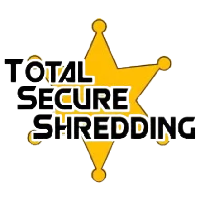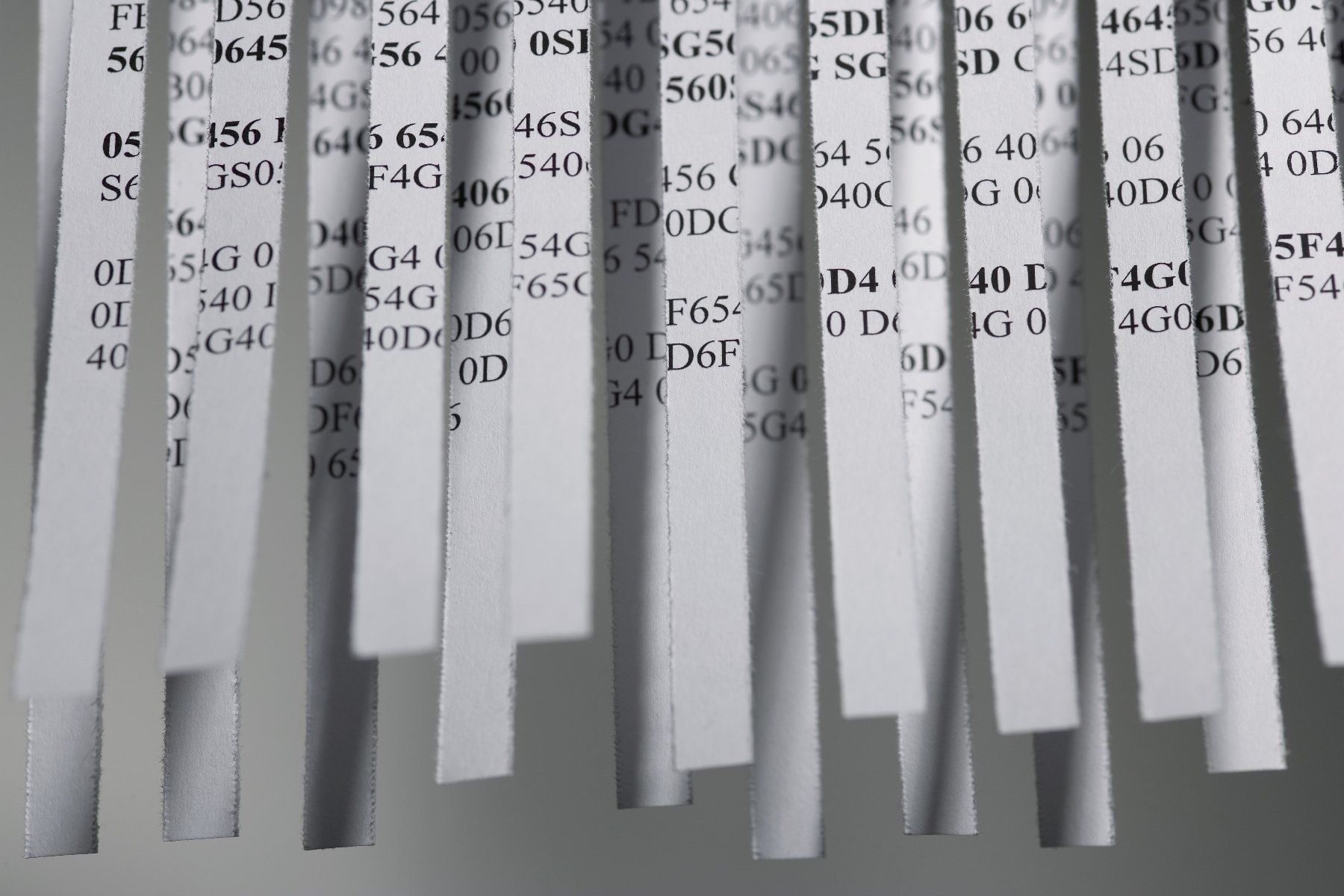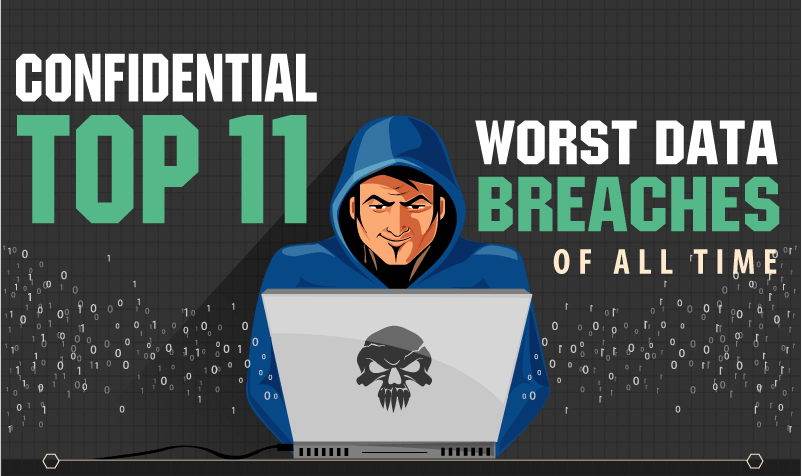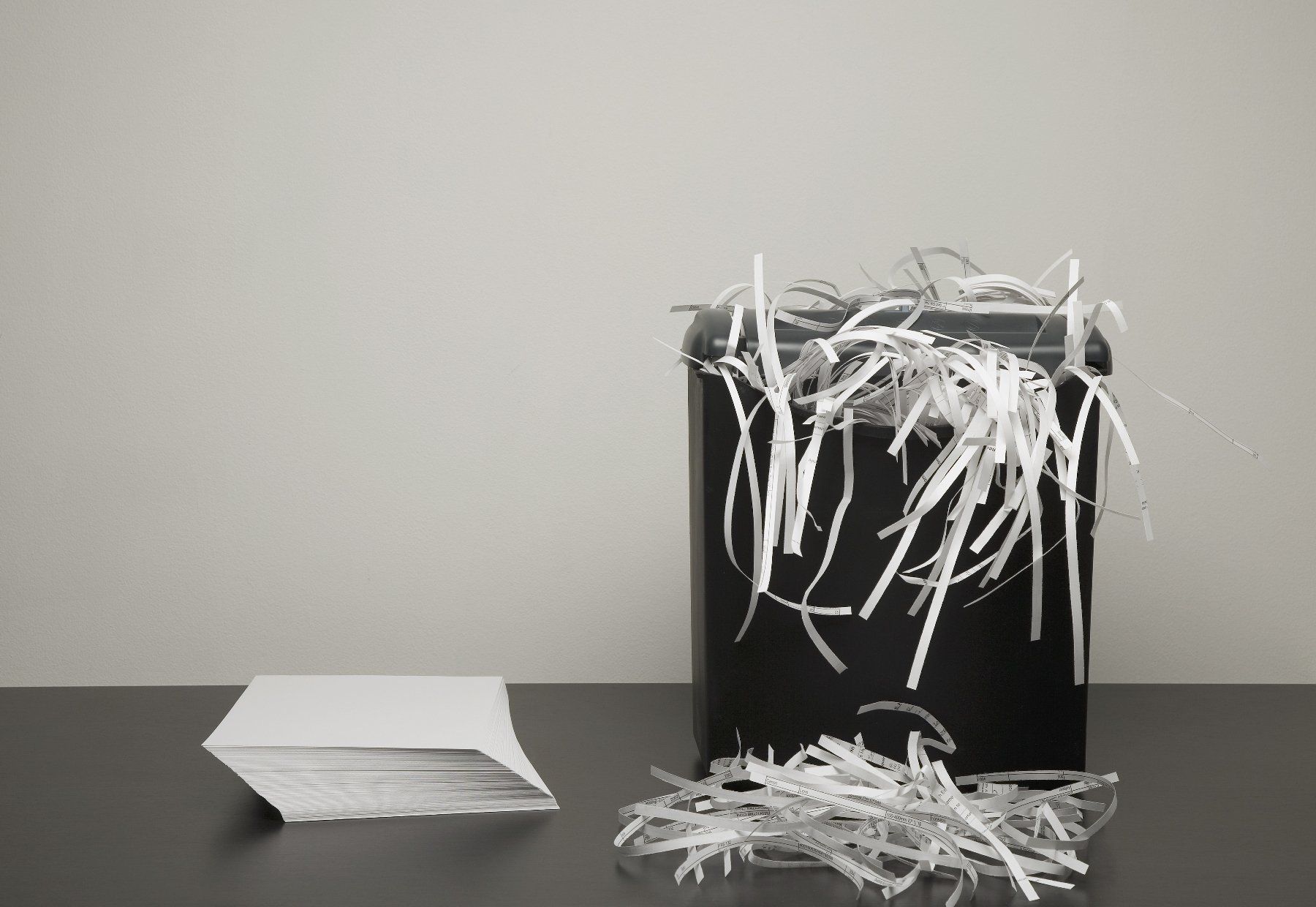The Ultimate Guide to What to Shred and When
Although many of us have taken advantage of email and other forms of electronic documentation with the advancement of technology, we somehow still seem to be weighed down with paperwork. If you own a small business or are in charge of an office at a large company, then keeping up with paperwork is important, and the law.
In recent years, state and federal officials have passed legislation to protect the sensitive information of individuals from scammers and identity thieves. One of the best ways to protect your personal information is to shred documents that contain sensitive data. But what papers should be shredded? And what’s the best way to shred them?
This guide will answer those questions and more. We’ll provide you with a list of documents that you should shred, as well as a step-by-step guide to shredding documents safely and securely. Wherever you are in the San Diego area, be sure and check out the shredding experts at Total Secure Shredding, San Diego’s top-rated residential and small business
paper shredding company. Keep reading to learn more about what and when to shred and why it's important to protect the safety of your clients, customers, and employees.
What items need to be shredded?
It may seem obvious what items need to be shredded; i.e. anything with personal or company data on it. This can include employee files, old utility bills, old tax documents, and for businesses like doctor’s offices and medical facilities, anything that has medical information on it. Essentially, you want to protect the privacy of everything that has sensitive data attached to it.
What documents should I shred?
The documents that need to be shredded include anything with personal identifying information like names, birthdates, addresses, phone numbers, emails, passwords, account numbers, driver’s license numbers, social security numbers, and PINs. Simply throwing these documents in the trash is not enough because data thieves can legally search through your dumpsters for anything that may help them steal private information.
Here’s a list of documents that you should shred to prevent identity thieves from stealing your personal information:
- Copies of important documents like marriage licenses and birth and death
- Expired visas, passports, and passport cards
- Invalid ID cards
- Report cards
- Resumes
- License plates
- Utility bills
- Student loan paperwork
- Junk mail like credit card and insurance offers
- Old pay stubs
- Sales receipts
- Billing statement for credit cards
- Medical records and medical bills
- Legal documents
- Airline tickets and travel itineraries
This is not an exhaustive list, but if you’re unsure about particular documents, the best advice is to shred it.
What items do I need to shred?
Documents aren’t the only things that need to be shredded. If you’re like many of us, you probably have old laptops, tablets, and mobile devices sitting in desk drawers collecting dust. While “shredding” is not the term you think of when considering the removal of sensitive data from electronic divides, professional mobile shredding companies shred hard drives, floppy discs, and even old monitors. Plus, once sensitive data has been removed from your devices, the remains will usually be sent to be recycled, which is good for the environment.
Deleting the information on your electronic equipment is not enough, hackers may still be able to recover some of the residual data. When you don't take the necessary steps to destroy the hard drives of electronic devices, you risk having sensitive information from yourself, your business, your client, or your patient fall into the wrong hands. Thankfully, it’s easy to get your electronics “shredded” these days. All you need to do is call the pros at Total Secure Shredding in the San Diego area, and we’ll get right to work.
Why You Need to Shred Documents
We can’t stress enough the importance of shredding documents with sensitive data. Criminal elements are always looking for ways to steal private information, and by not handling unused and outdated electronic equipment and old paperwork properly can cause your business a lot of headaches down the road.
Maybe you’re cleaning out your office, and you have old documents that you don’t need anymore. Or maybe your entire office is getting new computers in a bigger space? Whatever the reason, it’s important to know how to shred documents properly. And if you don’t shred documents that contain sensitive information, identity thieves could find them and use that information to steal your identity.
How To Shred Documents
Now that you know what documents need to be shredded and why it’s time to mention the easiest way to go about shredding them. For many small business owners, the purchase of a personal small paper shredder is an inexpensive way to shred important documents three sheets at a time. Hopefully. Shredding three sheets at a time can take a long time, and if there are staples in the papers, you can easily jam a small shredder when a staple gets stuck, or you put in more than a few sheets at a time.
There are also potential security concerns when using personal shredding services. These types of shredding machines typically only have one setting to shred documents which is called the spaghetti or strip cut. When papers are shredded in this way, they are cut into thin strips up to half an inch wide and can easily be pieced back together with a little patience, which could leave your sensitive data exposed to identity thieves.
Another option is to use a professional shredding service. With this option, you can shred large quantities of documents at once, and the best part is that you can set up a regular schedule, so paperwork doesn’t pile up. The documents are shredded on-site, so you can watch to make sure that all of your documents are shredded properly.
One situation that may occur if you’re considering on-site paper shredding is a lack of space. If your small business shares space with other businesses or has an office location where parking is at a premium, then you should consider drop-off paper shredding. As with on-site shredding, customers are able to watch the shredding process to be assured that all documents are destroyed completely.
How to Shred Hard Drives
When it’s time to update your computers at your business or to update to the latest version of your cell phones, you need to make sure your private information remains secure. As with paperwork, shredding your hard drive is a good way to know that your information is safe. It is important to note that simply deleting files or formatting the drive will not securely erase the data. The only way to ensure that the data on the drive is unrecoverable is to physically destroy it or use specialized software to overwrite it multiple times.
Hard drive shredding can be completed the same way as on-site paper shredding. Our company can come to your location and destroy all of your hard drives and other forms of electronic devices to keep your sensitive data secure.
How to Shred Products
Documents and electronic equipment aren’t the only items that need to be shredded. Many companies with proprietary logos, trademarked imagery, and outdated labels need to be disposed of properly so they don’t fall into the hands of competitors.
Unlike paper and hard drive shredding, product shredding isn’t actually shredding but is instead incineration. However, the process is still the same: our company can come to your location and pick up the products to be destroyed, or you can arrange for them to be dropped off at our secure location.
When to Shred Documents
In this guide, we’ve discussed the reasons why you need to shred documents, hard drives, and other items with sensitive information, so now it’s time to discuss when to shred them. Generally speaking, most items fall into four categories:
- Keep up to one year
- Shred after three years
- Shred after seven years
- Keep forever
Let’s look at the documents that should be kept up to one year: They include, but are limited to:
- Sales and ATM receipts
- Purchase orders
- Paid utility bills
- Credit offers
- Duplicate deposit slips
- Requisitions
- Receiving sheets
- Correspondence with vendors and customers
Documents that should be shredded after three years are:
- Timecards for hourly employees
- Internal audit reports
- Employee records (after termination)
- Expired insurance policies
- Employee applications
- Inventories of materials and supplies
- Sales invoices records
Next are the documents you need to shred after seven years:
- Accident reports and claims
- Bank statements
- Accounts payable ledgers and schedules
- Accounts receivable paperwork
- Employment tax records
- W-2 records
- Tax-related receipts
Lastly, the documents you need to keep forever:
- Social Security cards
- Cash books
- Titles and deeds
- Leases and contracts currently in effect
- Marriage and divorce certificates
- Birth, adoption, and death certificates
- Audit reports from accountants
- Year-end financial statements
The sooner you shred documents, the less time identity thieves have to find them and use them to steal your identity.
The Benefits of Shredding Documents
Besides keeping personal information protected, there are other benefits of shredding documents. First, it helps you clear out clutter from your office. And second, it helps you stay organized. When you shred documents, you can get rid of old documents that you don’t need anymore. This decluttering process can help you and your employees be more productive at work.
What Not to Shred
If you are considering using a mobile paper shredding service to securely destroy documents and hard drives, you may have some questions about what items can’t be shredded. Any items that aren’t paper should not be placed into the shredder including office supplies, food, glass, and anything with a battery. On the plus side, it is okay to put documents with staples and paperclips into the shredder, as the machines can easily handle these small bits of metal, which can save you a lot of time.
Additionally, once your documents are shredded, the remains are taken to be recycled, where magnets remove the metal remnants from the shredded papers, which is also good for the environment.
Shredding Services from Total Secure Shredding Prevent Identity Theft!
The professionals at Total Secure Shredding want to help you keep your sensitive information secure. That’s why we’ve been helping folks around San Diego protect the privacy of their customers, clients, and employees since 2006. We offer customers multiple options when it comes to shredding and hard drive destruction. We can assist with all of the following:
- Regularly Scheduled Paper Shredding Services
- On-Call Paper Shredding Services
- One Time Bulk Purge Paper Shredding Services
- On-Site Paper Shredding Services
- Off-Site Paper Shredding Services
- Walk In Witnesses Paper Shredding Services
- Walk In Drop Off Paper Shredding Services
- On-Site Hard Drive Destruction and Shredding Services
- Off-Site Hard Drive Destruction and Shredding Services
- Walk In Witnessed Hard Drive Shredding Services
- Walk In Drop Off Hard Drive Shredding Services
- Computer Hard Drive Removal Services
- Electronic and Computer Waste Recycling
Whether your business is large or small and you have one or a thousand boxes of documents to shred, we are here to assist you with any of your paper shredding needs. And we don’t just service businesses either. If you are an individual that is looking to purge a home office or a lifetime of paperwork, then don’t hesitate to reach out to us. We are committed to protecting the privacy of our clients and providing quality services. Contact us today to get a free quote!
FAQs About Document Shredding
-
How do I know if a document is sensitive?
If a document has your personal information, like your Social Security number or credit card number, it’s considered sensitive. To ensure that you are remaining as secure as possible, it’s best to have a “shred all” policy in place so no one is having to guess which documents contain sensitive information.
-
How often should I shred documents?
You should shred documents as soon as you don’t need them anymore. For example, if you get a credit card statement in the mail, shred it as soon as you’ve reviewed it.
-
Can I shred documents myself?
Yes, you can shred documents yourself with a personal shredder. However, this is by far not the most secure way to protect yourself and your data. Additionally, there is no Certificate of Destruction provided with this method of shredding, leaving no proof that your materials were properly destroyed.





